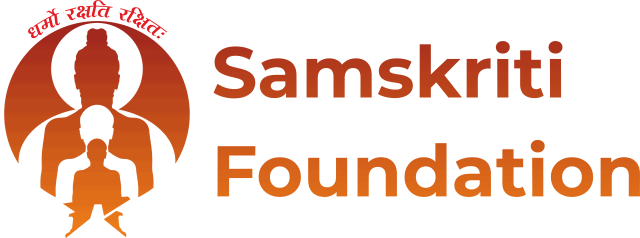DATE
February 17th & 18th, 2023
VENUE
National Institute of Advanced Studies (NIAS), Bangalore
ORGANIZER
Samskriti Foundation®, Mysore
Sponsored By
Dept. of Science and Technology, Govt. of India
Why you should attend Samiksha?
Over the last 2-3 decades there has been a renewed interest among scholars and scientists to examine the texts of Sanskrit-IKS with a different perspective as to whether they have anything worthwhile to contribute to the currently prominent aspects of ICT like Natural Language Processing, Encryption, Speech Technology etc. This is due to the fact that ancient Indian seers and scholars who authored various treatises (pertaining to the Vedic and Veda-related knowledge systems) had dealt with these very themes albeit in a different context with different objectives.
However, when these treatises were looked into with an exploratory perspective as to whether they could contribute in any way to the above-mentioned fields of ICT, it was found that there was a lot that was of great utility and relevance to these areas. All that was needed was that the theories found therein had to be decontextualized and looked into from a different perspective to realize their utility and relevance.
Though there have been a few seminars and conferences pertaining to this field, there is a dire and urgent need to go deeper and further to explore these aspects. This National seminar, aptly titled as ‘Samiksha’, literally meaning deeply and extensively looking at a particular topic / area (of trans-disciplinary / multi-disciplinary research), proposes to address the above aspects.
Broad Themes
a) Sanskrit-IKS and AI (Artificial Intelligence)
There has been a renewed interest in Sanskrit since the announcement of NEP 2020. Various academic institutions both at school education as well as higher education are adopting various approaches for improving the reach of the language through training programs, research and outreach initiatives. While various digital resources have improved the accessibility and use of world languages and even regional languages, Sanskrit presents unique challenges in automated computational processing. In addition to the sheer volume and diversity, both stylistic and chronological, found in these texts, the linguistic peculiarities expressed by the language, pose several challenges in making these works accessible to the world.
b) Sanskrit-IKS and Cryptography
Cryptography is art of converting text from one form to another, which changes the original meaning. The first stage of encryption converts plain text to unknown format or cipher text. The second stage is decryption or conversion of encrypted format to original text.
In Substitution cryptography letters of plain text are substituted with other letters . This method is further categorised into two types – monographic substitution where a single letter is replaced an polygraphic method where groups of letters are used to change the meaning of original message In transposition cryptography, rearrangement of letters changes the meaning of original text.
In ancient India, cryptography was used in Indian mythological text like hymns and lyrics for hiding text. Some of the methods used include the KaTaPaYaDi Sankhya paddhati. This method of encryption was used in Sanskrit texts as a hashing technique.
Firstly, they used methodologies to check the correct usage and pronunciation of the verses, where every variation from the correct mantra or shloka would result in an incorrect rendition of the pi number(or any other system which they would have encoded). Secondly, they used concepts like above to perform encryption and decryption so that the message would reach the intended receiver and no one would be able to catch the real meaning of the message.
The purpose of this topic is to bring forward the familiar concept that, not only were our ancestors religious, but all the concepts around religion and their overall lifestyle were highly scientific and analytical in nature. Encryption was already in use and is so complex at places that most of the ancient texts are still considered unsolvable by our neo-modern intellectuals. Since ages, this country has in place what people claim to have invented or solved only lately.
c) Sanskrit-IKS and Speech Technology
One of the exalted scientist-seers of ancient India, Sage Panini was the pioneer pertaining to speech technology in India many millenniums ago. He was the first person to systematize and properly delineate the features of the human speech box as well as its different areas that were instrumental in the generation of human speech. He also gave insights into different aspect of speech recognition and speech synthesis.
Apart from this, Automatic Speech Recognition (ASR) in Sanskrit is interesting, owing to the various linguistic peculiarities present in the language. The Sanskrit language is lexically productive, undergoes euphonic assimilation of phones at the word boundaries and exhibits variations in spelling conventions and in pronunciations. Different acoustic and language model units perform various roles in the ASR systems. Syllable level unit selection and graphemic representations are some of the techniques that impact the word error rates. Insights from Sanskrit ASR systems can help in building better performing ASR systems for other Indic languages.
The socio-cultural value of Sanskrit retains high significance in the modern Indian milieu and accessibility to Sanskrit resources is of utmost importance in India as well as in the world for the knowledge discourse in general. A stand-alone Grapheme-to-Phoneme (G2P) converter for Sanskrit speech synthesis is an important tool in this regard.
d) Other Relevant Areas
Apart from the above-mentioned themes there are several other subsidiary themes associated with the current topic wherein Sanskrit-IKS can contribute. There shall be a separate session for this discussing various aspects pertaining to these allied areas also.
Tentative Program Schedule
DAY – 1
17th Feb, 2023
Inaugural Session:
10.00 AM to 11.15 AM
The program and other details of the Inaugural session shall be given separately
Tea Break: 11.15 to 11.30
Academic Session 1:
11.30 to 1.00 PM
Theme: Sanskrit and Artificial Intelligence
Lunch Break: 1.00 PM to 2.00 PM
Academic Session 2:
2.00 to 3.30 PM
Theme : Sanskrit and NLP
Tea Break: 03.30 to 3.45 PM
Academic Session 3:
3.45 to 5.15 PM
Theme: Sanskrit and Speech Technology
DAY – 2
18th Feb, 2023
Academic Session 4:
10.00 to 11.30 AM
Theme: Sanskrit and Encryption
Tea Break: 11.15 to 11.30
Academic Session 5:
11.45 AM to 1.15 PM
Theme : Sanskrit and other ICT tools
Lunch Break: 1.15 PM to 2.30 PM
Panel Discussion:
2.30 PM to 3.45 PM
The way forward
Valedictory Session:
4.00 PM to 5.15 PM
The program and other details of the valedictory session shall be given separately.
Advisory Committee
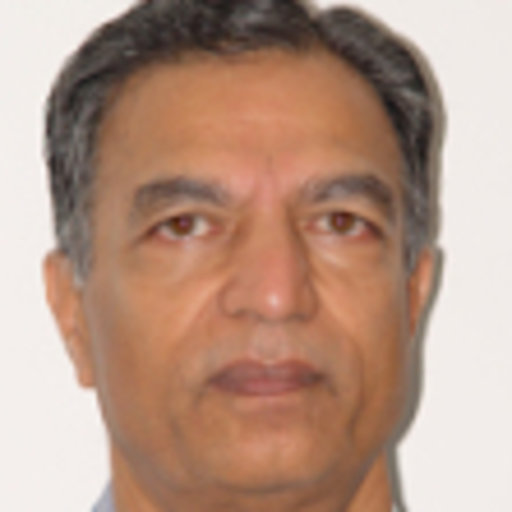
Prof. E.S.Dwarakadasa
Retd. Prof of Metallurgy, IISc, Bangalore and President, Samskriti Foundation®, Mysore / Melkote
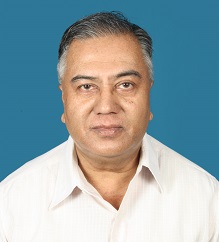
Prof. M.D.Srinivas
Chairman, Centre for Policy Studies, Chennai
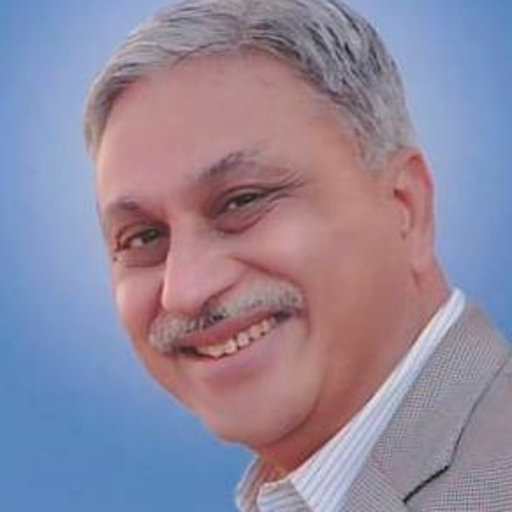
Prof. Shailesh Nayak
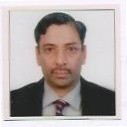
Dr. M.S.Vijayaraghavan
Former Special Secretary, Prime Minister’s Office, Govt. of India, New Delhi and eminent scientist
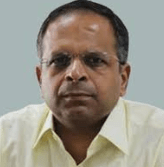
Sri. S.Gopalakrishnan IAS
Special Secretary, Ministry of Health and Family Welfare, Govt. of India, New Delhi

Sri. Akhilesh Jha IRAS
Chief Controller of Accounts, Ministry of Science and Technology, Govt. of India, New Delhi
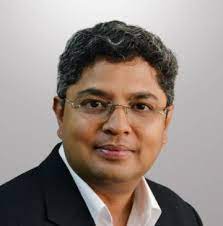
Sri. Sai Krishna Rajagopal
Legal luminary (IPR and Patents) & Managing Partner, Saikrishna & Associates, New Delhi
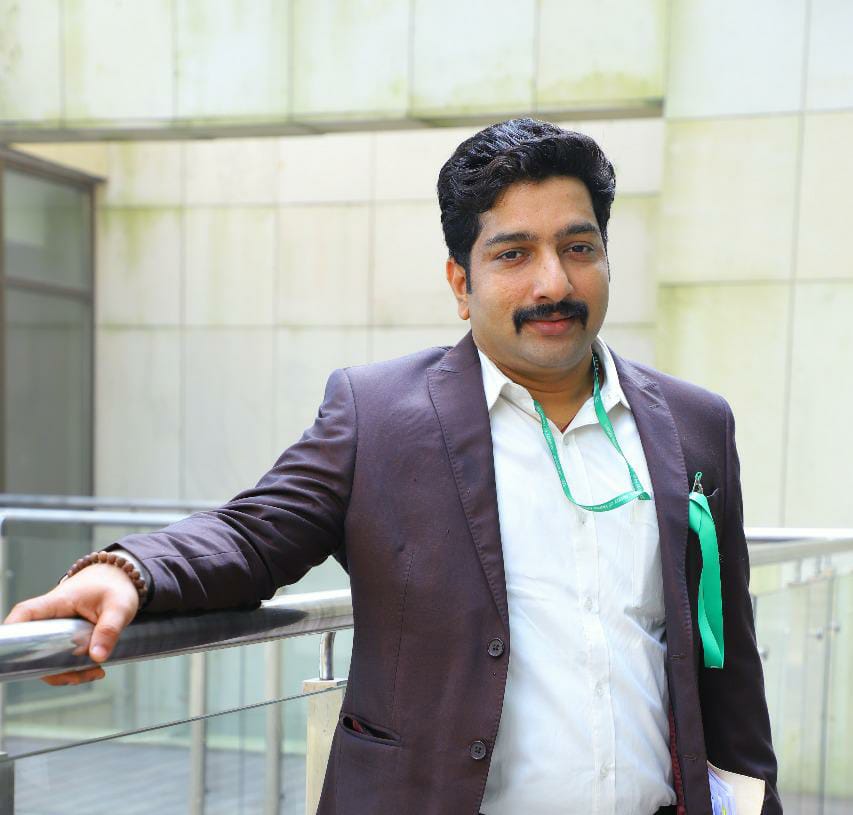
Dr.Pramod S
Scientist C, SHRI Cell, Dept of Science and Technology, Govt. of India, New Delhi
Organizing Committee

Prof. E.S.Dwarakadasa
Retd. Prof of Metallurgy, IISc, Bangalore and President, Samskriti Foundation®, Mysore / Melkote.

Dr. S. Vidyashree

Ms. Rekha
Organizing Secretary
Samskriti Foundation®
Samskriti Foundation® (a Public Trust registered in 1999) headquartered in Mysore, Karnataka with offices in Melkote (an ancient cultural town and seat of traditional knowledge) and Bangalore, is a non-profit organization engaged in the preservation and propagation of the Cultural and Scientific Heritage of India as well as in the development of sustainable Science and Technology without eroding the values of life and disturbing the ecological balance in Nature. It aims to bring together Science and Spirituality and to show that they can move hand in hand and lead a successful, peaceful and harmonious life.
Samskriti Foundation® is into mining of information from ancient palm-leaf manuscripts and books in Sanskrit and other languages of India regarding different topics as varied as Metallurgy, Aeronautics, Ayurveda, Music, Linguistics etc. Several research projects are being carried out in collaboration with premier research Institutes regarding combining the wisdom of Science and Technology that prevailed in ancient India like metallurgy, alchemy etc. Over the last two decades of its existence, it has brought out several publications in the form of books, and Interactive Multimedia programs (web-apps and mobile apps) on various aspects of Indian cultural heritage including Yoga, Manuscriptology and so on. Various courses are also being conducted for students from India and Countries abroad to propagate Spiritual Practices, Indian Philosophy, Traditional Indian Agriculture, Animal Husbandry, Indian Astronomy etc. that are based in the rich Indian Cultural Heritage.
Background
Samskriti Foundation® has currently taken up a very ambitious project to classify, catalogue and document all the available ancient palm-leaf manuscripts pertaining to various branches of science and technology. As part of this project, it is proposed to organize an annual National seminar on the contribution of Sanskrit and the Sanskrit-based Indian Knowledge Systems (IKS) to various fields as varied as material sciences, Information sciences and natural sciences and their different branches. This year’s national seminar shall focus on the contribution of Sanskrit and the Sanskrit-based Indian Knowledge Systems (IKS) to Information Sciences that includes various branches of ICT like NLP, Encryption, Speech Technology, AI and such other aspects, to which Sanskrit-IKS have a lot to contribute and vice-versa.
Registration
All persons who are interested to be part of the deliberations are most welcome to participate in this Seminar. A nominal fee has been prescribed for those who wish to participate. Interested persons have to fill in the online form given in the website and register by paying the fees online. The facilities provided to the registered participants include:
- Participation in the seminar
- Lunch / Tea and snacks on the two days of the seminar
- Seminar Kit
The fees prescribed is as follows:
2,000/-
Institutional participants (may include up to 3 members)
1,000/-
Individuals / Independent Researchers
500/-
Bonafide Students of Graduate / Post Graduate / Doctoral levels
Paper Presentation
The papers that shall be presented in this National Seminar shall be strictly on invitation only. Stalwart scholars and scientists who have worked extensively in the relevant fields shall be invited to present papers on the relevant topics.
Poster Presentation
Poster-presentations are open to all, provided they meet the necessary quality standards. A committee constituted for this purpose shall look into the content of the posters and intimate the presenters. The last date for submitting the posters shall be 5th of February, 2023. Those who propose to make such presentations may contact the organizing secretary of the seminar whose email address and phone number is given below.
Objectives of the seminar’s poster presentation:
- To exhibit and show case research on Sanskrit and ICT
- To encourage, recognize and reward young scholars’ achievements and aspirations
- To facilitate collaboration between intra and inter disciplinary domains related to Sanskrit and ICT
